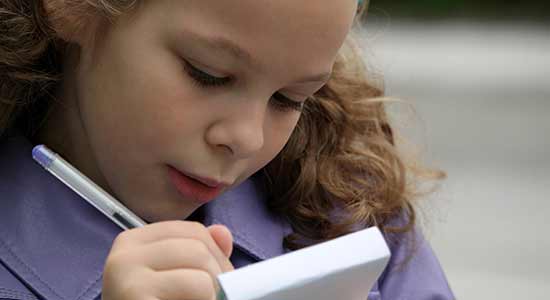Knowing another language can be a valuable asset in today’s global economy. But it is not just the ability to speak another language that makes it beneficial. Knowing two or more languages also enhances your child’s critical thinking skills, problem-solving skills, and creative thinking abilities.
In this blog post, we will discuss the top ten reasons why learning a second language is crucial for your child’s development. Discover the key benefits of bilingualism for children and why introducing a new language early can make a lasting impact on your child’s education and future success.
Speaking another language expands your child’s mind.

As children learn grammar rules and how to speak another language, they develop higher-order thinking skills like reasoning, problem-solving, creativity, self-awareness, and reflection.
This benefits students in the classroom because academic success requires more than just memorizing facts; students need to develop creative thinking skills and apply their knowledge effectively in various real-world situations.
When your child learns another language, they start looking at things differently. They begin to see new connections and possibilities that were not obvious before. This change in thinking is a skill that will benefit your child throughout their entire life!
This encourages your child to develop stronger observation and attention skills, helping them become more focused and ready to succeed in the classroom and excel in their education.
Being bilingual can improve your child’s memory.
Although bilingual individuals often appear to switch between two languages in their minds, studies on bilingualism reveal that people who speak multiple languages tend to have stronger memory skills.
This means bilingual individuals can retain information for longer periods because their brains have developed neural pathways that allow information to move across both languages at the same time. This enhanced brain connectivity supports better memory retention and cognitive function in bilingual people.
As you know, developing strong memorization skills will help your child do well in school. So if they learn another language at an early age, these skills will be helpful when speaking with classmates and when learning new vocabulary and concepts in class!
We all know that school can be really tough for kids. But if your child learns another language, they will have a great deal of social and academic success.
Learning another language helps your child become more creative.
The process of learning another language can be very challenging because there are so many rules to follow.
For example, it takes time and practice for children to learn the gender of nouns in Spanish (“la mesa” is feminine while “el libro” is masculine). So as they begin this difficult task, their brains start thinking about words differently—this gives them an edge!
As you probably know, creativity plays a vital role in school success. So even though learning new vocabulary or grammar points may seem tedious at first, it will help your child’s intellectual growth by making them think outside the box!
Learning a second language can make your child more empathetic.
When children learn another language, they also gain awareness about other cultures and communities!
Studies show that when bilingual people communicate in their shared language, the conversation flows seamlessly because there is no delay in looking up words in the dictionary or using body gestures to explain what you mean.
This makes it easier for them to understand each other—and empathize with one another’s points of view!
Being aware of different perspectives will help your child be successful both socially and academically.
And since they can now relate better to classmates who speak a different native tongue at home, this might even improve their friendship skills too!
Being bilingual gives your child the freedom to explore new ideas.

People who speak more than one language have greater access to different ideas and concepts because their vocabulary is not limited by only one culture’s perspective!
Some studies suggest that bilingual children can learn up to three times more words than monolingual children!
Having a more extensive vocabulary will help your child think in new ways. And since they can learn about different cultures, this might even encourage them to travel—and see the world through other people’s perspectives!
Even if spending time abroad is not something you are interested in for your child yet, learning another language will give them the freedom of thought that could eventually lead to pursuing international interests.
Speaking two languages helps your child increase their understanding of the world.
As you know, many people speak more than one language in our global community today!
But even if learning another tongue is not necessary to communicate with someone else who speaks English, it will help children become aware that others might have different ideas and views about things they take for granted (like how we use time).
For example, some languages only include words for “past” and “future.” And since these concepts are relative to each other (each depends on the other), this could make them think differently about life itself!
So by learning another language, your child will be able to understand current events better—and what makes up everyday life for people worldwide!
Being bilingual helps your child increase their self-confidence.
Learning a second language can be difficult, but it’s enriching!
For example, children who speak more than one language often have higher self-esteem because they know that what they are learning is important. And since their brains process information differently (in both languages), this makes them think on an advanced level too!
As you probably know already, many people fear speaking in front of others—and public speaking can also cause stress and anxiety for kids. But by learning another language, your child will gain the confidence they need to overcome their fears about sharing thoughts with other people.
This could make them more assertive in different situations too!
So not only will learning a second language help your child become bilingual, it will make their life better on an emotional level as well. And since this confidence can cross into other areas of development (like friendships and academics), this is one reason why children who learn another language excel socially as they grow older too!
Speaking another language helps your child increase their reading comprehension.
That is because when your child learns a second language, they build upon the existing skills of their first language. For example, if you are an English speaker learning Spanish, you will likely have already learned most of what there is to learn about prefixes and suffixes in English, which makes it easier for you to grasp how they work in Spanish.
When this understanding has been transferred from one language to another, the vocabulary words these sounds attach become significantly less intimidating. Your brain can make sense of them more quickly than with new words not linked to any sound previously made.
This means that while reading in their second language, children who know two languages often find themselves decoding words at a much faster rate than children who only know one language.
Many children who learn more than one language have better reading comprehension because they can think about words in different ways depending on the context of their sentence—and why that word is used within each specific context.
Your child will be better at multi-tasking.

Multi-tasking is a great skill to have, but it also takes practice and time to develop since the brain can only focus on one task at a time. However, when your child is bilingual and speaks two languages fluently, they can multi-task better by switching back and forth between the two languages.
Children who speak multiple languages fluently can switch from one task to another more quickly than those who only speak one language. They had better control over their attention spans and greater mental flexibility—which is essentially the ability of your brain to think about things in different ways depending on what you are doing at any given moment.
This means that when your child learns a second language, they will be able to multi-task much easier since their mind can focus on both tasks without becoming overwhelmed or unable to concentrate fully. This could make them successful in school while also handling the demands of work or other activities.
Learning another language can also open up more opportunities later on in life.
Having bilingual skills can help your child become more competitive when applying for jobs or colleges.
Not only will they be able to communicate with people who speak both languages, but their job prospects will likely increase since many employers look at multilingualism as an asset.
If your child can speak two languages, they will also find it easier to travel around the world, too, since many people do not speak English as their first language.
That means that when traveling abroad, there are likely to be times when someone does not understand what you are saying if you only know one language. This is something that bilingual children often avoid because they have learned how to communicate differently depending on the situation at hand.
Conclusion.
Learning a second language is vital for children. It has been proven to have many benefits, including increased brain size and development, better job prospects in the future, the ability to communicate with people from other cultures or countries more efficiently, and so much more!
In this blog post, we shared 10 of the most compelling reasons why your child should learn a second language. What are some other advantages do you think they might enjoy? Share below.

Dive into the insights of Matthew Mansour, a seasoned life coach, fitness guru, and health mentor. With a portfolio boasting over 800 thought-provoking articles, Matthew is passionate about unraveling the intricate layers of the human psyche. His reading choices? Books that shed light on our unique human journey, helping him (and his readers) harness the power of the mind, transforming challenges into stepping stones.
Matthew proudly wears his badge as a self-help aficionado. His mantra? There’s always room to grow, learn, and be inspired. He thrives on gleaning wisdom from pioneers, turning their experiences into valuable lessons for all.
Always on the pulse of emerging trends, Matthew immerses himself in groundbreaking courses and research centered around life coaching and holistic health. Eager to impart his knowledge, he’s here to guide anyone keen on enhancing their life journey.
Beyond his professional persona, Matthew is a devoted animal lover, a proud New Jersey resident, and a doting husband and father. Dive into his self-improvement blog and let Matthew guide you towards a life filled with purpose and passion!
Reviewed By: Joanna Perez and Marcella Raskin
Edited By: Lenny Terra
Fact Checked By: Gabrielle J. Smith
Photos Taken or Curated By: Matthew Mansour